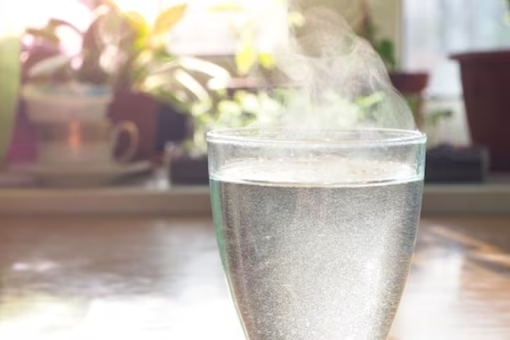Boiling water is a simple yet effective method that brings numerous benefits to both health and safety. Primarily, boiling water serves as a reliable means of purifying it, eliminating harmful bacteria, parasites, and other contaminants that may pose health risks. This practice is essential in areas with questionable water quality. Additionally, boiling water is an accessible and cost-effective way to make it safe for consumption, reducing the likelihood of waterborne diseases. But what do you do with the leftover boiled water? Do you toss it or reheat it for tea or soups? Experts caution against re-boiling water due to potential risks. When liquids are boiled for too long, they become more concentrated. So, re-boiling the same water can make it more concentrated or increase dissolved salts.
Here are the downsides of re-boiling water:
Nitrates: While nitrate salts dissolved in water are typically not harmful, over-boiling or re-boiling the same water can potentially turn nitrates into a toxin called nitrosamine. Nitrosamine is associated with diseases like cancer, leukaemia, and non-Hodgkin’s lymphoma.
Arsenic: Re-boiling water has the potential to increase the concentration of dissolved arsenic, which, when elevated, can lead to health issues such as cancer, infertility, heart attacks, mental disorders, circulatory system damage, and skin damage.
Fluoride: Increased consumption of fluoride dissolved in water may elevate the risk of bone disorders, including fractures, tenderness, and pain. Excess fluoride can cause damage to teeth and tooth enamel in children under 8 years of age.
Calcium: Although calcium is beneficial for teeth and bones, re-boiling water can raise the dissolved calcium levels, contributing to the formation of kidney stones and gallstones.
Change in pH: Boiling can affect the pH of water, making it slightly more acidic, primarily due to the escape of dissolved carbon dioxide during the boiling process.
Change in Water Chemistry: Boiling water can remove or reduce the amount of dissolved gases and volatile compounds. While this may alter the taste, it could also lead to an increased concentration of unwanted chemicals and impurities in the water.
Considering the potential risks outlined above due to re-boiling water, it is strongly advised against using re-boiled water for preparing formula for babies. Studies have indicated that utilising re-boiled water for making tea can also impact its taste.


